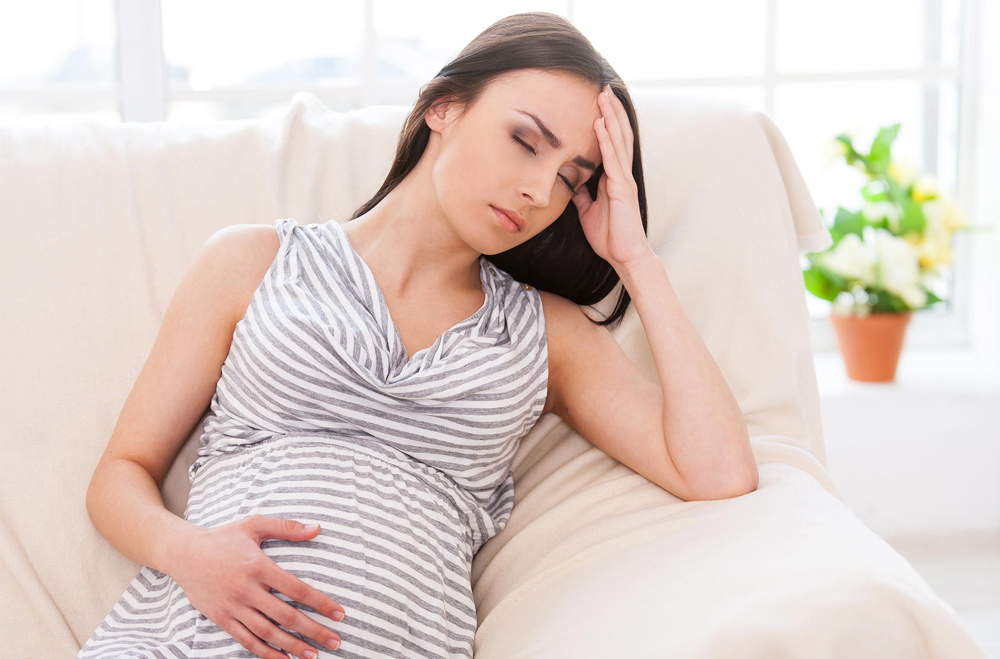A woman’s body undergoes several physical and emotional changes during pregnancy, a transformational period. Morning sickness or nausea is a typical experience, especially during the first trimester. Other common changes during pregnancy include back pain, breast tenderness, constipation, fatigue, frequent urination, heartburn and leg cramps. These changes can be present in one or two trimesters of pregnancy, in all three trimesters or not at all.
Most pregnant women claim their memory worsens during pregnancy. However, the so-called “pregnancy brain” has not been proven to exist. “Memory problems may be attributed to lack of sleep, fatigue or simply thinking too much. Motherhood is, after all, a very life-changing process,” says Dr Wee Wei-Wei, Consultant, Minimally Invasive Surgery Centre, KK Women’s and Children’s Hospital (KKH), a member of the SingHealth group.
Dr Wee explains how you can cope with ten of the common physical and emotional changes during pregnancy:
1. Back pain
Back pain usually occurs during the second and third trimesters. It is usually worse in the third trimester due to the distending uterus and the weight of the pregnancy.
What you can do: Have plenty of rest and wear proper walking shoes. If you can’t bear the back pain, simple analgesia such as paracetamol may suffice.
2. Breast tenderness
Hormonal changes can cause the breasts to feel heavier and tender.
What you can do: Usually, breast tenderness is mild and tolerable, and paracetamol and cold cabbage compress will provide relief.
3. Constipation
What you can do: Have plenty of water, fruits and vegetables. If you are still constipated, your doctor may prescribe laxatives.
4. Fatigue
What you can do: Have plenty of rest, good sleep hygiene and a balanced diet.
5. Mood swings
What you can do: Good sleep hygiene, a well-balanced diet and a safe exercise regimen may improve mood swings.
6. Frequent urination
This usually occurs because the uterus compresses the bladder. In rare cases, this may be due to a urinary tract infection and may be accompanied by painful urination.
What you can do: Consult your doctor if you experience pain when urinating.
7. Heartburn
The hormone progesterone relaxes the oesophageal sphincter and delays the emptying of the stomach, causing heartburn during pregnancy. In the first trimester, frequent nausea and vomiting may worsen the heartburn. In the second and third trimesters, the distending uterus may make matters worse.
What you can do: Have frequent small meals and avoid trigger foods. Your doctor may prescribe medication to relieve the heartburn during pregnancy.
8. Leg cramps
Leg cramps usually occur in the second and third trimesters, especially at night. The growing uterus puts pressure on the main vein of the mother’s legs, which when combined with the effects of the hormone progesterone, affects the leg muscle tone. Leg cramps may also be due to the shortage of calcium and magnesium which the baby is absorbing from the mother.
What you can do: It is not clear whether taking calcium or magnesium salts can help to prevent leg cramps.
9. Morning sickness
Morning sickness is nausea that can occur at any time of the day, not just in the morning. It usually improves after the first trimester though some women may have it throughout the pregnancy.
What you can do: Avoid trigger foods. Have small but frequent meals and keep well hydrated.
10. White vaginal discharge
It’s normal to have an increase in vaginal discharge during pregnancy.
What you can do: If the discharge is itchy, foul-smelling or copious, consult your doctor, as it could be a sign of a lower genital tract infection, e.g. fungal infection, which pregnant women are prone to.
When should you seek help from the doctor?
Vaginal bleeding and abdominal pain are not common changes during pregnancy and usually are signs of a problem. “Patients who experience vaginal bleeding or abdominal pain should consult their obstetrician and gynaecologist immediately,” says Dr Wee.
The above article is reproduced with permission from HealthXchange.sg: Trusted health tips tailored for Asia, by Singapore’s largest academic medical centre, SingHealth.
Click here to read about how changes in your diet can help alleviate pregnancy symptoms.













